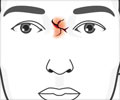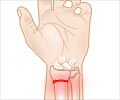
The individual anti-epileptic drugs studied included carbamazepine, clonazepam, ethosuximide, gabapentin, phenobarbital, phenytoin and valproic acid. Additional anti-epileptic drugs with fewer numbers of users were included together under "other anti-epileptic drugs."
The likelihood of fractures was highest for persons taking phenytoin followed by carbamazepine, other, phenobarbital, gabapentin and clonazepam. The only anti-epileptic drug not associated with an increased likelihood of fracture was valproic acid.
Similar results were found when testing for the use of anti-epileptic drugs in monotherapy (individuals taking only one anti-epileptic drug) and in polytherapy (individuals taking more than one anti-epileptic drug). All anti-epileptic drugs used in monotherapy were associated with a significantly increased risk of fracture except for valproic acid, phenobarbital and "other anti-epileptic drugs." The greatest risk of fracture was found in individuals in the polytherapy subgroups.
"In conclusion, our study showed that most anti-epileptic drugs except for valproic acid are associated with an increased likelihood of non-traumatic fracture in individuals aged 50 years or older," the authors write.
The study has been published in the Archives of Neurology, one of the JAMA/Archives journals.
Advertisement















